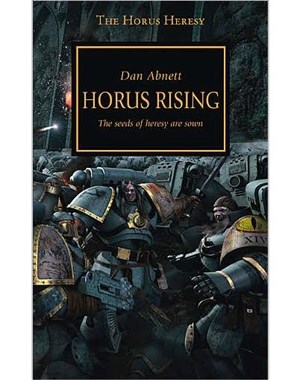I was sucked in, from the very first line, preceding even the first chapter: "I was there, the day Horus slew the Emperor..."
The opening is deliciously unclear - are we starting at the end - it's a common enough device. The diversions are well crafted and flow well, with exposition integrated without becoming obvious or overbearing. That said, the trip to Murder becomes a bit long and unrelated, with no clear tie to the main story. That's not to say the section isn't interesting, it is, but it seems divergent to the purpose except to introduce Saul Tarvitz and the Emperor's Children.
That said, it's only really looking back on the novel that I feel that it meandered from the point. I was completely absorbed in the novel, staying up far too late finishing it on a weeknight. In fact, any real hint at the burgeoning Heresy isn't shown until the very end, and not from where you expected going in. That said, the foreshadowing is prevalent, and almost stressful, which I consider the mark of good Tragedy; it's only powerful if you know it will end badly but root for the hero anyway. The novel also does a great job of making Horus likable and human. He's not quite, but he is not a god, and he is not an alien, he has a human basis with human concerns and feelings, which we are allowed to see.
As I mentioned before, I stayed up far too late reading this, and immediately went online and purchased Book 2: False Gods around 3:00am (I get up at 6:00am most days, so that's how reckless about my sleep these books have made me). I've already finished that and am half way through Book 3, so I hope to catch up to the series relatively quickly.


No comments:
Post a Comment